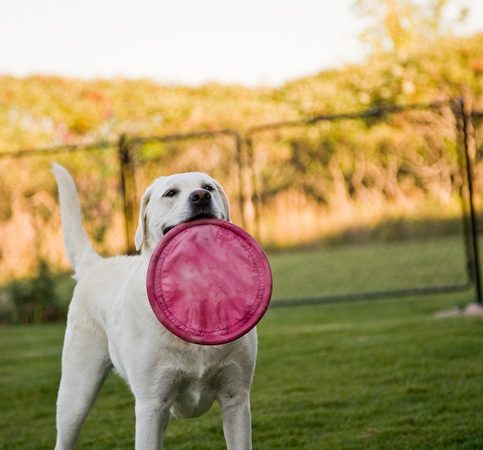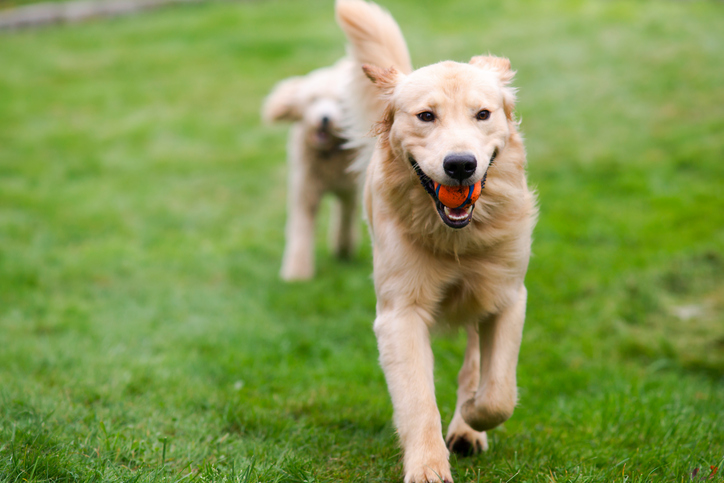Use these 12 pointers for happy pet travels on your next RV excursion.
Ready to hit the road with your pet? Don’t leave home without carrying this handy checklist on your travels.
1) Check in with the Vet
A pre-departure vet exam can spot potential health problems and ensure that your pet is current on core vaccines required by pet-friendly establishments. Parvovirus, distemper, rabies and bordatella inoculations are the most common, but your vet may recommend others to protect against geographically specific conditions like leptospirosis and Lyme disease. Pets with chronic immune-system illnesses like cancer can apply for vaccine waivers. File all of these records in the RV, because vaccination certificates are often required, especially at international border crossings.
2) Update Dog ID Info on the Go
Abrupt events like thunderstorms often cause pets to flee. Consider purchasing a GPS locator tag that lets you track your dog’s movements on a smartphone. Other electronic pet ID devices enable you to update your pet’s location details on the go, such as your RV park name and campsite number. The information gets stored in the cloud and on a compact USB drive that hangs from a collar, allowing anyone who finds your dog to read its info on a computer.

3) Create a Pet-Friendly Home on Wheels
Familiarize your pet with the RV by placing their toys, feeding station, bedding and crate in a safe, cozy spot. Prepare for daily walks by keeping leashes, collars and a portable water bowl by the door. Hopefully, your adventures will be injury-free, but be prepared with a good pet first aid kit that includes tick removal kits, vet bandages and a muzzle. Camping World stores carry many of the pet travel accessories that you’ll need for your RV adventures.
4) Choose the Right Chow
Feeding time can be tricky on the road, especially if your pet eats an uncommon food. Consider transitioning to a more common one at least three weeks before leaving. Dehydrated pet food is helpful too; it’s made on the spot with hot water, takes up less space and weighs less than cans.
5) Avoid Motion Sickness and Boredom
Pets and people alike get carsick. Acclimate your pet to vehicle motion with progressively longer RV trips around your neighborhood. Some pets will need anti-nausea prescription medication, but another good option is a “calming cap” device that works like a horse blinder; it goes over your dog’s head and tones down visual disturbances that cause anxiety. When you’re finally on the road, chew toys and frequent bathroom breaks can help minimize anxiety.
6) Know the Rules
Log on to www.GoodSamClub.com for pet restrictions at the RV parks you’re considering for your trip. If you seek more detailed information, always call and ask before visiting. If you are allowed to bring a commonly prohibited breed, like a pit bull, Doberman or Rottweiler, go the extra mile to be an exemplary canine citizen.

7) Enjoy Dog Days at the Park
Many RV parks now have dog parks, and some even include obstacles and play apparatus for your furry passengers. For the most freedom to roam, visit during off-peak hours. Bring your own water bowls to avoid contagious diseases like the canine flu, which are spread through common drinking areas. Observe common courtesy at the dog park; clean up after your pet and make sure it plays nicely with others. Back at the RV, fast cleanups are easy when you keep dry dog shampoos and moist towelettes in the RV, but stock extra towels for the occasional bath and grooming session. Many RV parks have dog wash stations just for furry guests.
8) Consistency is Key
Dogs thrive on routine, so try to maintain a consistent schedule of regular activities like feeding, walking and playtime. If your dog is in good shape, summertime swimming holes are great for extra exercise, but play it safe with a canine floatation jacket for peace of mind in unfamiliar waters. If bad weather keeps you inside the rig, interactive doggy “brain games” can engage a bored pet.
9) Keep Cool
Humans don’t wear fur coats in July, but that’s what our dogs must endure during the heat of summer. Shield all pets from hot temperatures, and remember that older canines and dogs with darker hair are more vulnerable to summer heat. Canine cooling jackets and cooling bandanas are widely available to help dogs stay comfortable in hot weather.
10) Watch Out for Critters
Supervise dogs carefully so that they don’t have dangerous encounters with wild animals like coyotes and porcupines. Unfortunately, smaller pests like fleas and ticks are a little harder to spot, but they’re easy to keep away from your pet and RV with eco-friendly repellants like citronella sprays, cedar oil and food-grade diatomaceous earth. Should you discover a parasitic hitchhiker, use a flea comb or tick removal tool to pull them out and away from the skin.
11) Ban the Barking
Dog barking is a major annoyance to RV park neighbors, but a few simple exercises can put a stop to it. For example, if your dog gets anxious when you leave the RV, start daily training sessions that have you coming and going from your RV while gradually extending your away times. Just don’t leave your pet unattended too long, because even well-behaved dogs will bark at outside noises. Other good tools include pheromone collars with calming scents and anti-anxiety music composed especially for dogs.
12) Look for Pet-Friendly Parks
Treat your pet to a fabulous camping experience by staying at a pet-friendly RV park. Many of the parks on that list offer perks like dog runs, dog washing stations and dog walking services. Some of the parks even conduct pet parades during special holidays. Take time now to plan a road trip with your pet for meaningful memories that last a lifetime.
Consult GoodSamClub.com/Pets for fantastic discounts on products for your furry travel companions.










